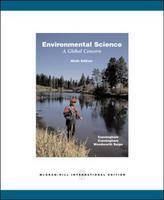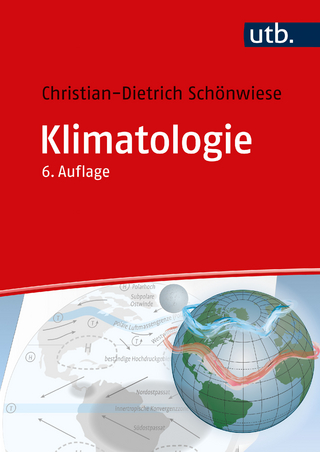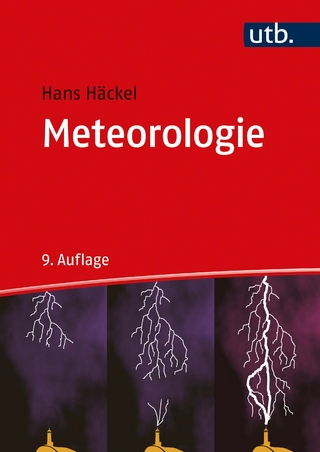
Environmental Science
McGraw Hill Higher Education (Verlag)
978-0-07-110790-7 (ISBN)
- Keine Verlagsinformationen verfügbar
- Artikel merken
"Environmental Science, Ninth Edition", is a comprehensive presentation of environmental science for non-science majors which emphasizes critical thinking, environmental responsibility, and global awareness. This book is intended for use in a one- or two-semester course in environmental science, human ecology, or environmental studies at the undergraduate level. The goal of this book is to provide an up-to-date, introductory global view of essential themes in environmental science along with emphasis on details and case studies that will help students process and retain the general principles. The authors make the text readable and accessible without technical jargon or a presumption of prior science background. At the same time, enough data and depth are presented to make this book suitable for many upper-division classes and a valuable resource for students who will keep it in their personal libraries after their formal studies are completed.
William Cunningham is a professor of cell biology at the University of Minnesota. He received a B.S. degree in biology from Southwest Texas State College in 1959 and a Ph.D. in botany from the University of Texas in 1963. He was a Postdoctoral Fellow at both the Wenner Gren Institute in Stockholm, Sweden, and Purdue University. He holds memberships in many biological/educational societies and organizations and has received numerous honors and awards. Dr. Cunningham has devoted himself to education and teaching development at the undergraduate level in biology. He began his educational career in structural biology but for the last 10-15 years has concentrated on environmental science, teaching courses such as Social Uses of Biology; Garbage, Government, and the Globe; Environmental Ethics; and Conservation History. Within the past four years, he has received both of the two highest teaching honors that the University of Minnesota bestows -- The Distinguished Teaching Award and a $15,000 Amoco Alumni Award. This year he is serving as Faculty Mentor for younger faculty at the university, sharing the knowledge and teaching skills that he has gained during his distinguished career.
Introduction: Learning to Learn Part One: Principles for Understanding Our Environment Chapter 1: Understanding Our Environment Chapter 2: Environmental Philosophy, Ethics, and Science Chapter 3: Matter, Energy, and Life Chapter 4: Biological Communities and Species Interactions Chapter 5: Biomes: Global Patterns of Life Chapter 6: Population Biology Part Two: People in the Environment Chapter 7: Human Populations Chapter 8: Environmental Health and Toxicology Chapter 9: Food and Agriculture Chapter 10: Pest Control Part Three: Understanding and Managing Living Systems Chapter 11: Biodiversity Chapter 12: Land Use: Forests and Grasslands Chapter 13: Preserving and Restoring Nature Part Four: Physical Resources and Environmental Systems Chapter 14: Geology and Earth Resources Chapter 15: Air, Weather, and Climate Chapter 16: Air Pollution Chapter 17: Water Use and Management Chapter 18: Water Pollution Part Five: Issues and Policy Chapter 19: Conventional Energy Chapter 20: Sustainable Energy Chapter 21: Solid, Toxic, and Hazardous Waste Chapter 22: Urbanization and Sustainable Cities Chapter 23: Ecological Economics Chapter 24: Environmental Policy, Law, and Planning Chapter 25: What Then Shall We Do? Glossary Index
| Erscheint lt. Verlag | 1.12.2005 |
|---|---|
| Reihe/Serie | McGraw-Hill Higher Education |
| Zusatzinfo | Illustrations, maps |
| Verlagsort | London |
| Sprache | englisch |
| Maße | 203 x 254 mm |
| Gewicht | 1360 g |
| Themenwelt | Naturwissenschaften ► Geowissenschaften ► Allgemeines / Lexika |
| Technik ► Umwelttechnik / Biotechnologie | |
| ISBN-10 | 0-07-110790-8 / 0071107908 |
| ISBN-13 | 978-0-07-110790-7 / 9780071107907 |
| Zustand | Neuware |
| Informationen gemäß Produktsicherheitsverordnung (GPSR) | |
| Haben Sie eine Frage zum Produkt? |
aus dem Bereich


